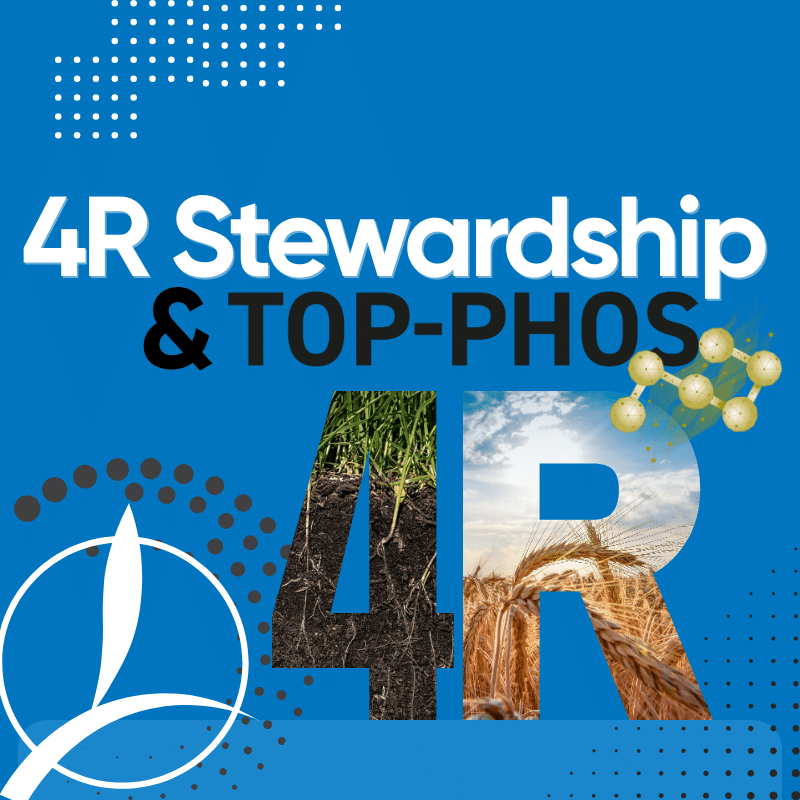Breakthrough for Canola Under Drought Stress
A new study from the University of Calgary, in collaboration with TIMAC AGRO Canada, shows that Roullier seaweed-based biostimulant can significantly enhance canola growth and drought tolerance.
Boosting Canola's Resilience to Drought: How Seaweed and Mineral Extracts Can Help
The increasing prevalence of droughts in Canada, is posing a serious challenge to canola cultivation. As these extreme weather events become more frequent and severe, researchers are exploring innovative solutions to improve the drought tolerance of crops like canola. Recent studies from the University of Calgary (U of C) have shed light on a promising approach: using plant biostimulants derived from seaweed and minerals to enhance canola’s ability to withstand drought.
The Study Setup: Testing Five Extracts on Canola
To investigate how different biostimulants could impact canola’s growth and drought resilience, the U of C researchers tested five different extracts on canola plants. These extracts were as follows:
- RE1 and RE2: Seaweed-based extracts
- RE3: A combination of RE1 and RE5 (a mineral-based extract)
- RE4: A combination of RE2 and RE5
- RE5: Mineral-based extracts
RE stands for Roullier Extracts. The extracts are from TIMAC AGRO’s biostimulant line up with SEACTIV technology like Fertileader.
Researchers focused on evaluating the effect of these extracts on various growth parameters, such as plant height, branch length, stem width, and the total number of flowers and pods. The goal was to determine which extracts could most effectively promote healthy growth in the face of drought stress.
Growth Observations: Extracts Yield Significant Benefits
The results were striking. Plants treated with the RE extracts showed significant improvements in growth compared to the control group. The treated plants were taller, had longer branches, and wider stems. More importantly, they produced more flowers and pods, indicating that the extracts had a positive effect on the overall development of the plants.
Gene Expression and Growth Regulation
To gain a deeper understanding of how the extracts were influencing canola, the team also analyzed the plant tissue at a molecular level. Using RNA sequencing, they isolated triplicate RNA samples from each treatment to assess changes in gene expression.
One of the most noteworthy findings was that the extracts, especially RE4 (a combination of RE2 and RE5), promoted the upregulation of genes responsible for regulating growth. In fact, 1406 genes were found to be differentially expressed in plants treated with RE4, with 1279 of these genes being upregulated. This suggests that RE4 significantly stimulated growth-related genes, potentially explaining the enhanced growth observed in treated plants.
Interestingly, while RE2 (seaweed-based) and RE5 (mineral-based) an effect on gene regulation when applied alone, their combination in RE4 produced the most significant impact, highlighting the potential power of synergistic formulations in improving plant growth.
Testing Drought Tolerance: The Real Test
The true test for these biostimulants came when the plants were subjected to drought conditions. After 8 weeks of growth, the researchers withheld water from the plants for 6 days, simulating a severe drought. The plants were then re-watered and assessed 5 hours later.
The results were impressive: Every plant treated with one of the RE extracts recovered fully within 5 hours of rewatering, while the control plants showed no signs of recovery. This finding strongly suggests that the biostimulants induced protective traits that allowed the plants to reestablish themselves much faster after experiencing drought stress.
Not only did the treated plants survive, but they also showed a higher number of viable leaves compared to the control group, indicating better overall health and vitality after the drought.
THE PROCESS












Conclusion: A Promising Solution for Drought-Resilient Canola
This study provides compelling evidence that biostimulants, particularly those based on a combination of seaweed and mineral extracts, can significantly enhance the drought tolerance of canola plants. The upregulation of genes linked to growth and the ability of treated plants to recover quickly from drought stress highlight the potential of these biostimulants to help canola farmers adapt to the increasing challenges posed by climate change.
As drought conditions continue to become more severe, the findings of this research offer hope for developing more resilient canola varieties that can thrive even in the face of unpredictable weather patterns. Further research and field trials will be crucial to confirm these results on a larger scale, but the early indications are promising. By leveraging the power of natural extracts, we may be one step closer to safeguarding the future of canola production in Canada.
“Given the successful and promising results observed under greenhouse conditions, we are currently employing these sprays under field conditions to assess their efficacy. Through this study, we have been able to conclusively demonstrate that the biostimulants used in this study could significantly improve agronomic traits of critical importance. The added bonus would be that RE treated plants will be primed for drought tolerance, which could serve as crop insurance during seasons with severely water limiting conditions.” 1

"My hope with these biostimulants is that they can be harnessed by Canadian farmers to improve crop reliability, giving them a leg up on our more uncertain climate futures."
Justin Nichol
Ph.D. University of Calgary
Nichol, Justin B., Alynne Kris B. Ribano, Neil M.N. Hickerson, Nusrat Ali, Frank Jamois, and Marcus A. Samuel. 2023. “Plant Growth Regulator Extracts from Seaweeds Promote Plant Growth and Confer Drought Tolerance in Canola (Brassica Napus).” Plant Signaling & Behavior 18 (1). doi:10.1080/15592324.2023.2267222.
Articles that might interest you
-

Sustainable Crop Nutrition: 4R Stewardship and Top-Phos
Sustainable Crop Nutrition: 4R Stewardship & Top-Phos In modern agriculture, two challen...
Read more
-

The History of Top-Phos
Top-Phos: A revolution in Phosphorus Nutrition Breaking 165 Years of TraditionFor over a centu...
Read more
-

Caring for the Hands That Feed Us: Mental Wellness in Ag
The heart of agriculture is the people working the land every day. We know it’s not always easy cost...
Read more




